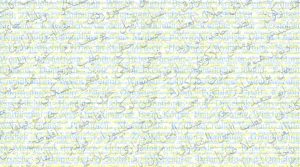NISIS Study Day “Islamic Philosophy?”, Radboud University, Nijmegen, 12 April 2024
by:

As Western faculties strive to diversify their curricula to combat its historically Eurocentric focus, interest for non-Western philosophical traditions has been on the rise. One of the beneficiaries of this trend has been Islamic philosophy. Supporting this trend, during this study-day, organised by the Netherlands Interuniversity School for Islamic Studies (NISIS) and Radboud University (RU) in Nijmegen, we will introduce MA-students and PhD-candidates in Islamic studies, philosophy or related fields to Islamic philosophy and present them with some pressing questions in this field.
We will do this by focusing on a question that is inescapable when discussing Islamic philosophy, namely: What is specifically Islamic about Islamic philosophy? The discipline of philosophy (Arabic: falsafa) finds its roots in ancient Greece and deals with topics that, if not universally relevant, are at least not specifically tied to Islamic tradition. So what is it that makes philosophy stand out as being Islamic? Is this related to the philosophers in question being Muslim or with the topics on which they work? Yet if the topics are different, then how does it relate to philosophy more generally? Can we even speak cogently about Islamic philosophy or is it better to speak of philosophy ‘in’ the Islamic world?
Interestingly, this is neither a modern question, nor one that arose from Western academia. In Islamic tradition itself, the position of philosophical inquiry and how it fits in the larger framework of knowledge production in the Islamic world has been a pivotal topic. Philosophers were required to defend their discipline as being in accordance with the Islamic teaching, while at the same time accounting for the non-Islamic origins of falsafa (an Arabization of the Greek philosophia). This differentiation between the universal and the Islamic has led to the development of a wide range of terms that marked the establishment of a discipline that was specifically Islamic in its orientation. For example, the Arabic term hikma (wisdom) was adopted as a rival to falsafa and to describe someone as a faylasuf (philosopher) was certainly not the same as describing someone as hakim (wise) – whether in the tenth century, the fourteenth or the seventeenth.
As has been shown is recent studies by Heidrun Eichner, Frank Griffel and Ayman Shihadeh, these and other terms were relevant and, indeed, central to what Griffel called the “formation of post-classical philosophy in Islam”. They show efforts to create an independent philosophy at the heart of the Islamic tradition. During this study day we will discuss this development with experts of the so-called “classical”, the “post-classical”, and the “modern” period of Islamic philosophy. We will go into how Islamic philosophy is both tied to global trends in philosophy and how it has managed to maintain its own character and we will explore philosophy’s place in Islamic societies, both in the past and in the present.
Program:
10.15-10.30 Welcome
10.30-10.45 A word of welcome by
- Carla Rita Palmerino (Radboud University, Nijmegen)
- Joas Wagemakers (Netherlands Interuniversity School for Islamic Studies (NISIS))
10.45-12.00 Session 1: Classical Islamic Philosophy
- Cornelia Schöck (Ruhr Universität Bochum)
- Andreas Lammer (Radboud University, Nijmegen)
13.00-14.15 Session 2: Pre-Modern Islamic Philosophy
- Peter Adamson (Ludwig-Maximilians-Universität München)
- Ahab Bdaiwi (Leiden University)
14.30-15.45 Session 3: Modern Islamic Philosophy
- Harald Viersen (Radboud University, Nijmegen)
- Kata Moser (Georg-August-Universität Göttingen)
16.15-17.00 Session 4: Public lecture
- Carool Kersten (Catholic University Leuven)
Link to the event (for information and registration)
